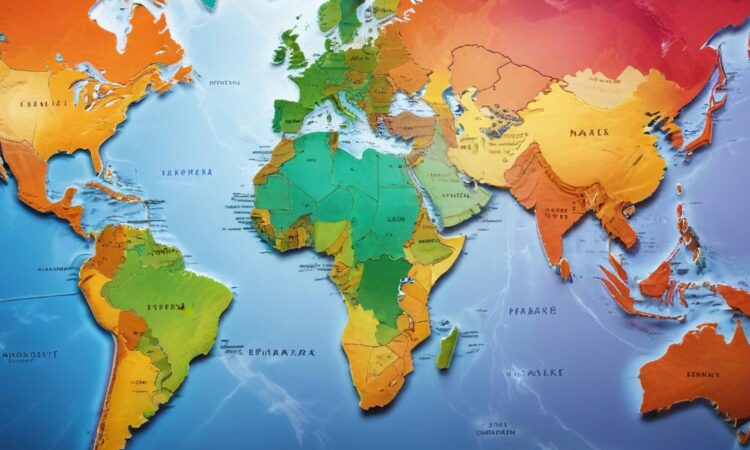Emerging Markets and Development Challenges: Economic Outlook
Introduction
Emerging markets, characterized by rapid economic growth and structural transformation, have become integral to the global economy. These markets offer significant opportunities for investment and trade, driving global growth and fostering development. However, emerging markets also face a multitude of challenges, ranging from inflation and debt to political instability and geopolitical tensions. This analysis delves into the economic outlook for emerging markets, examining growth prospects, key challenges, and the impact on global trade and development.
Growth Prospects: A Mixed Bag
Emerging markets have historically exhibited impressive growth rates, outpacing developed economies. This growth has been fueled by factors such as demographic dividends, rising incomes, and increased urbanization. While the outlook for emerging markets remains positive in the long term, short-term prospects are clouded by a confluence of global and regional factors.
Global Economic Headwinds
The global economic environment has become increasingly volatile, presenting significant challenges for emerging markets. The war in Ukraine, rising interest rates in developed economies, and persistent inflation are dampening global demand, slowing trade growth, and making it more expensive for emerging markets to borrow money.
Regional Dynamics
Within emerging markets, growth prospects vary significantly. Countries with strong domestic demand, robust fiscal policies, and diversified economies tend to be more resilient. On the other hand, countries heavily reliant on commodities, facing political instability, or grappling with high debt levels are more vulnerable to economic shocks.
Challenges Facing Emerging Markets
Inflation: A Persistent Threat
Inflation has surged across the globe, posing a significant challenge for emerging markets. Rising energy and food prices, supply chain disruptions, and robust demand have fueled inflationary pressures. Central banks in emerging markets have been raising interest rates to control inflation, but this can slow economic growth and exacerbate debt burdens.
Debt: A Growing Concern
Emerging market debt levels have been rising in recent years, driven by factors such as low interest rates, increased borrowing for infrastructure projects, and the impact of the COVID-19 pandemic. High debt levels can make economies more vulnerable to economic shocks and limit government spending on social programs and development initiatives.
Political Instability: A Major Hurdle
Political instability, ranging from social unrest to armed conflict, can significantly disrupt economic activity, deter investment, and undermine development. Political instability can also exacerbate existing problems such as inequality, corruption, and weak governance.
Geopolitical Tensions: A New Frontier
Emerging markets are increasingly caught in the crossfire of geopolitical tensions between major powers. The ongoing trade war between the United States and China, the war in Ukraine, and other geopolitical disputes are creating uncertainty and volatility in global markets, impacting trade and investment flows.
Impact on Global Trade and Development
Trade Disruptions
Emerging markets are major players in global trade, serving as both exporters and importers of goods and services. However, global trade has been disrupted by the COVID-19 pandemic, the war in Ukraine, and geopolitical tensions. This disruption has hampered economic growth, increased uncertainty, and created supply chain bottlenecks.
Development Setbacks
The challenges facing emerging markets can significantly impact development efforts. Inflation, debt burdens, and political instability can undermine poverty reduction, hinder social progress, and limit access to essential services.
Conclusion
Emerging markets face a complex and challenging economic landscape. While growth prospects remain positive in the long term, short-term headwinds are significant. Inflation, debt, political instability, and geopolitical tensions present major hurdles to economic development. Addressing these challenges requires effective policy responses, strong international cooperation, and a commitment to sustainable and inclusive growth. By navigating these challenges successfully, emerging markets can continue to play a vital role in driving global economic growth and fostering development.
Recommendations
To navigate these challenges and realize their full potential, emerging markets should consider the following recommendations:
- Fiscal Discipline and Debt Management: Implement prudent fiscal policies to control government spending and reduce debt levels.
- Monetary Policy Flexibility: Use monetary policy tools to control inflation and maintain stable exchange rates.
- Structural Reforms: Implement structural reforms to improve the business environment, enhance competitiveness, and promote innovation.
- Investing in Human Capital: Prioritize education, healthcare, and social safety nets to improve human capital and reduce inequality.
- Strengthening Governance and Institutions: Promote good governance, reduce corruption, and strengthen institutions to foster a predictable and transparent business environment.
- International Cooperation: Engage in multilateral cooperation to address global challenges, promote trade, and secure financial assistance when needed.
The economic future of emerging markets hinges on their ability to address these challenges and capitalize on opportunities. By adopting sound policies, promoting good governance, and fostering international cooperation, emerging markets can pave the way for sustainable and inclusive growth, contributing significantly to global prosperity and development.

